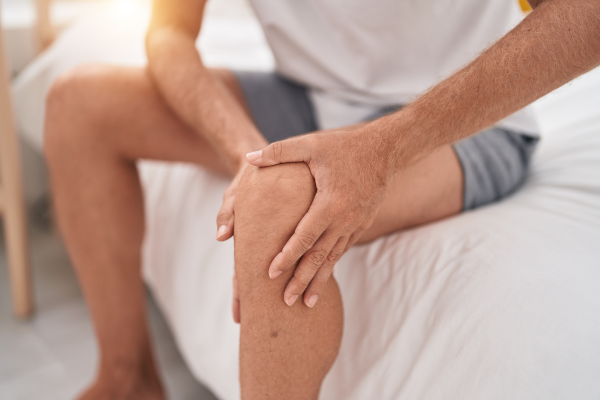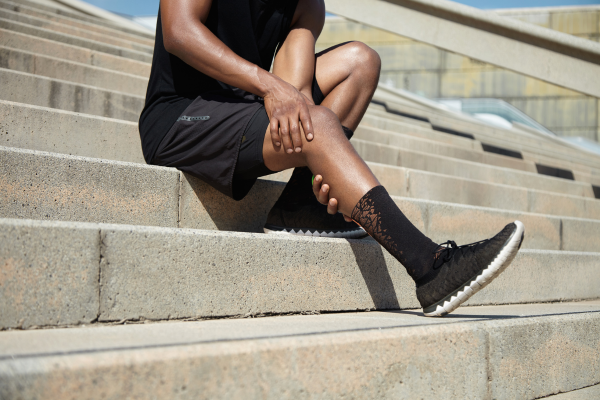Do you struggle to get to sleep and find yourself staring at the ceiling for hours? Or wake up thinking it’s time to start your day, but discover it’s only 2 am?
If bad sleep is ruining your day, it might be time to get to grips with your sleep hygiene – and why you might be stopping yourself from getting the proper sleep you need. Everyone can adjust their sleep hygiene habits to suit them, and building healthy habits during the day can have more impact than you might realise.
Let’s explore what sleep hygiene is, what changes you can make to your routine to improve your sleep, and our top 10 healthy sleep habits.
What is good sleep hygiene?
Sleep hygiene simply means good sleep habits. Good sleep hygiene is crucial for your mental and physical health and your overall quality of life.
You might think only your habits just before you go to bed can affect your sleep quality, but your actions throughout the day can affect this too. Your nutrition choices, schedule, evening routine, and other activities can all impact how well you sleep.
Why is proper sleep hygiene important?
We’ve covered ‘what is good sleep hygiene’, but why is it really important?
Proper sleep hygiene is important for your well-being and productivity. Individuals of all ages can benefit from getting better sleep, and sleep hygiene can play a major part in that.
Sleep hygiene comprises both our environment and our habits, and can affect the quality of our sleep and overall health. Building an environment and set of habitual routines that promote better quality sleep can pay off! Improving your sleep hygiene has virtually no cost or risk, and can counteract problems you may be facing such as insomnia or insufficient sleep.
What are the signs of poor sleep hygiene?
Suffering from sleepiness during the day, experiencing disturbances frequently during sleep, and finding it difficult to fall asleep, are the most common signs of bad sleep hygiene. A general inconsistency in the quality or quantity of your sleep can also point to poor sleep hygiene as the cause.
Sleep Hygiene Tips: 10 Healthy Sleep Habits
If you are not sleeping well, don’t worry – there are a few things you can do to improve your sleep! Proper sleep hygiene relies on building healthy habits throughout the day and during the evening. Let’s take a look at ten sleep hygiene tips you can use to improve your sleep quality:
1. Regular Exercise
Even just thirty minutes of exercise per day can help to improve your quality of sleep, and your health overall. Exposure to light also helps to regulate the sleep cycle – so get outside and move, if you can!
Tip: Avoid exercising within an hour or two of going to sleep, as your energy levels and body temperature can increase which may make it more difficult for you to get to sleep. Try stretching or yoga instead!
2. Limit Caffeine
Did you know that caffeine can affect you for up to 7 hours after you consume it? Your afternoon latte might be keeping you awake. It’s best to limit your caffeine consumption to the morning, but everyone has a different tolerance so you may be able to have some caffeine mid afternoon. In general, if you consume a small amount of caffeine you may be more sensitive to its effects.
3. Sleep Schedule Consistency
Going to sleep and waking up at roughly the same time each day will regulate your body’s sleep cycle (think of this like an internal clock!), which makes it easier for you to wake up and fall asleep. Having this consistent schedule with 7-8 hours of sleep each night can also help you avoid feeling sleepy during the day!
4. Bedtime Routine
Creating a relaxing routine for bedtime allows you to unwind and get ready for sleep. Having this routine can also help your body recognise when it’s time for bed, and help you fall asleep faster! Start your routine around thirty minutes to an hour before bed, and include whatever will make you feel most relaxed, such as:
- A warm shower or bath
- Gentle stretches
- Meditation
- Breathing exercises
- Reading or listening to gentle music
5. Goodbye Electronics
Please, please, please stay away from your electronic devices before you sleep. Devices such as your phone emit blue light, which can keep your brain alert and make it much more difficult for you to get to sleep. This kind of light can reduce melatonin – the chemical controlling the sleep/wake cycle in your body!
6. No More Napping
Taking naps during the day can make it much more difficult to fall asleep when it comes to bedtime, and may cause you to wake up throughout the night. It’s best to limit napping or avoid it completely if you can. If you must nap, try and limit it to 30 minutes maximum, and avoid napping in the late afternoon.
7. Your Environment
If you want to fall asleep easily, a cool, dark, and quiet room might help you. Make sure you have a comfortable mattress and pillows to give you the best chance of falling and staying asleep! You may also want to consider earplugs or blackout curtains, to keep your space as quiet and dark as possible for sleeping.
8. Use Your Bed for Sleep
This might sound silly, but if you have a comfortable bed you might be tempted to also use it for working, reading, or watching TV. However, to strengthen the association between bed and sleep, you should try and use it primarily for sleeping.
9. Go To Bed When Tired
If you go to bed before you’re tired, you might end up tossing and turning. Try doing something relaxing until you begin to feel tired, then get into bed. If you’re not able to fall asleep, you can start getting frustrated which can end up keeping you up even longer. In these situations, it’s best to get out of bed, do something to help you relax, and go to bed when you’re feeling more sleepy.
10. Stress Management
If you can’t stop thinking about worries before bed, try one of these things to help you get to sleep calmly:
- Try meditation before bed to calm down
- Write out any worries to get them down on paper and out of your head
- Write out your to-do list and prioritise items
- Use a weighted blanket, which can provide similar benefits to deep-pressure therapy
Can your sleeping position affect your sleep hygiene?
One aspect of poor sleep quality is that sleeping in awkward positions can impact your spinal health. It can lead to back and neck pain, muscle cramps, and fatigue, amongst other symptoms, so it’s important to protect your back while lying down. Sleeping on your back is actually the healthiest option! Learn more about the best sleeping positions for sleep quality.
How to improve sleep hygiene
Proper sleep hygiene is all about healthy sleep habits, like the sleep hygiene tips we’ve outlined above. Your behaviour throughout the day and before bed can really affect your sleep quality. If you find it hard to fall asleep or stay asleep, give one or two of these strategies a go.
Exercising regularly, sticking to a calm bedtime routine, and paying attention to your sleeping environment, can all impact your sleep quality.
If your sleeping issues persist and you are feeling persistent pain while trying to sleep, or would just like some advice, please get in touch and one of our osteopaths or physiotherapists will be happy to help you.





